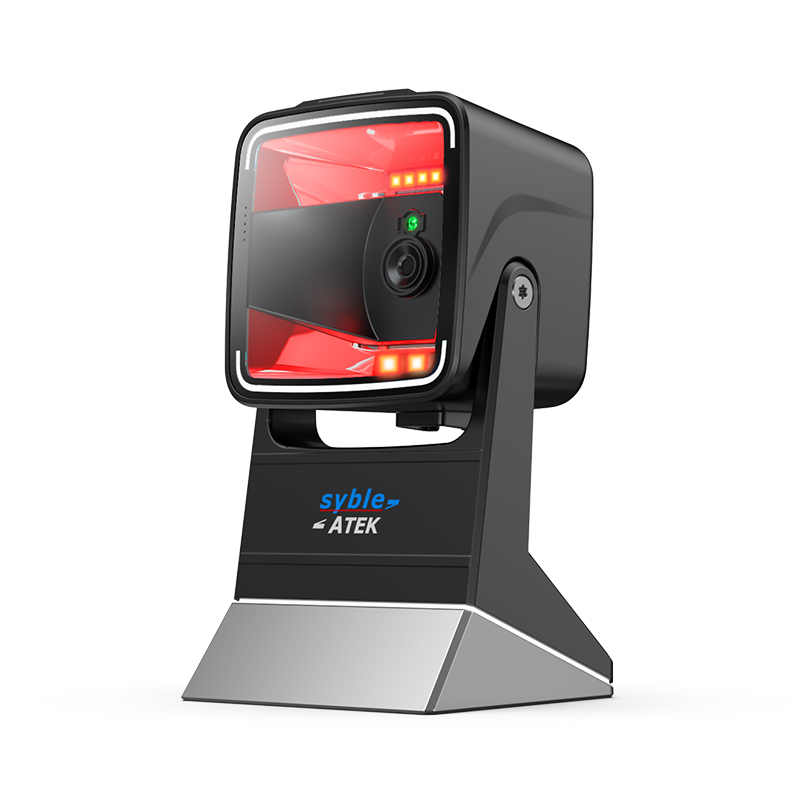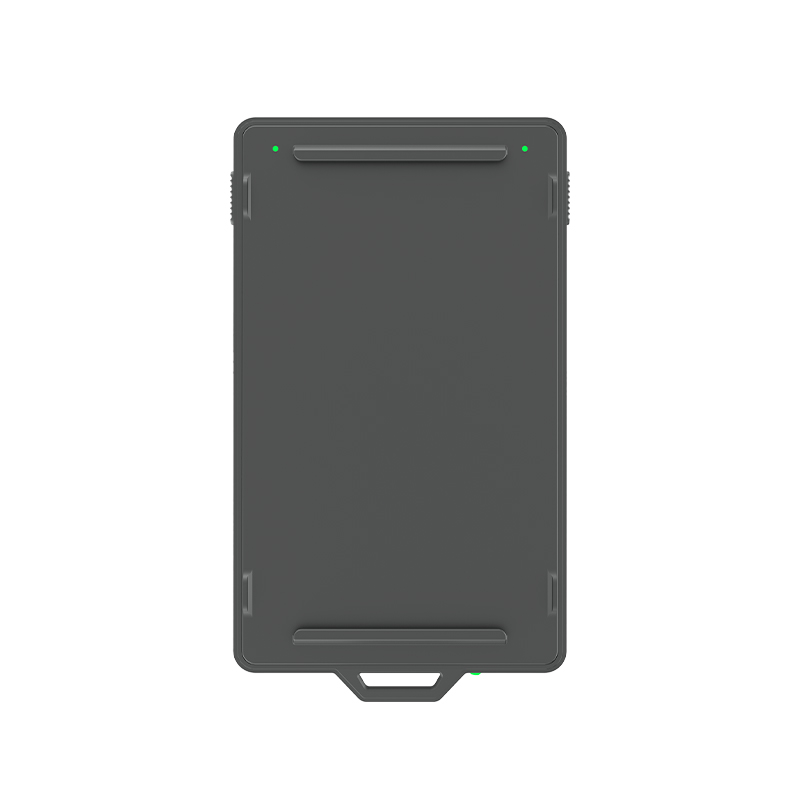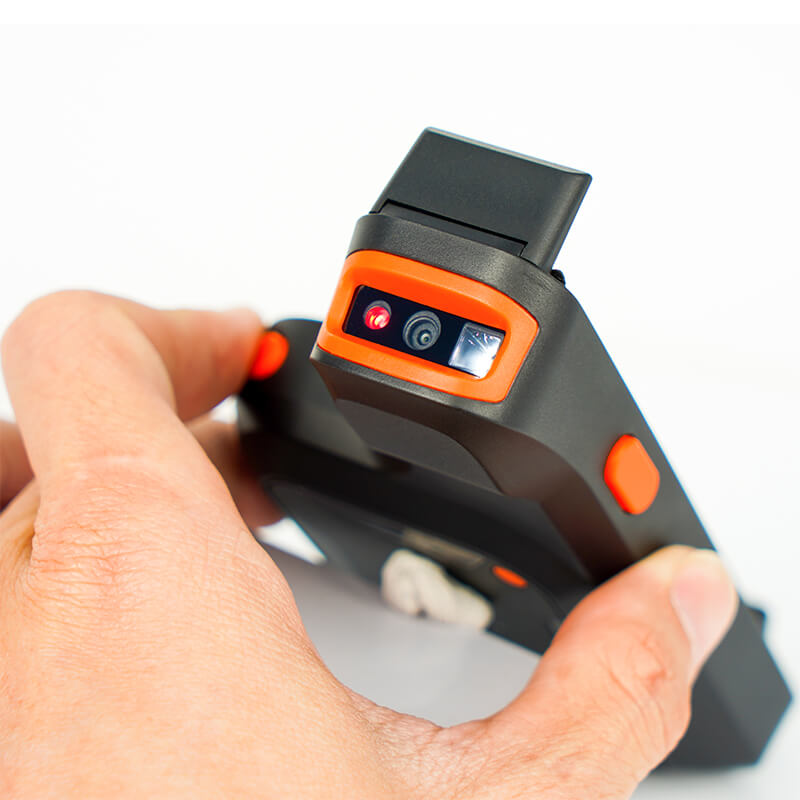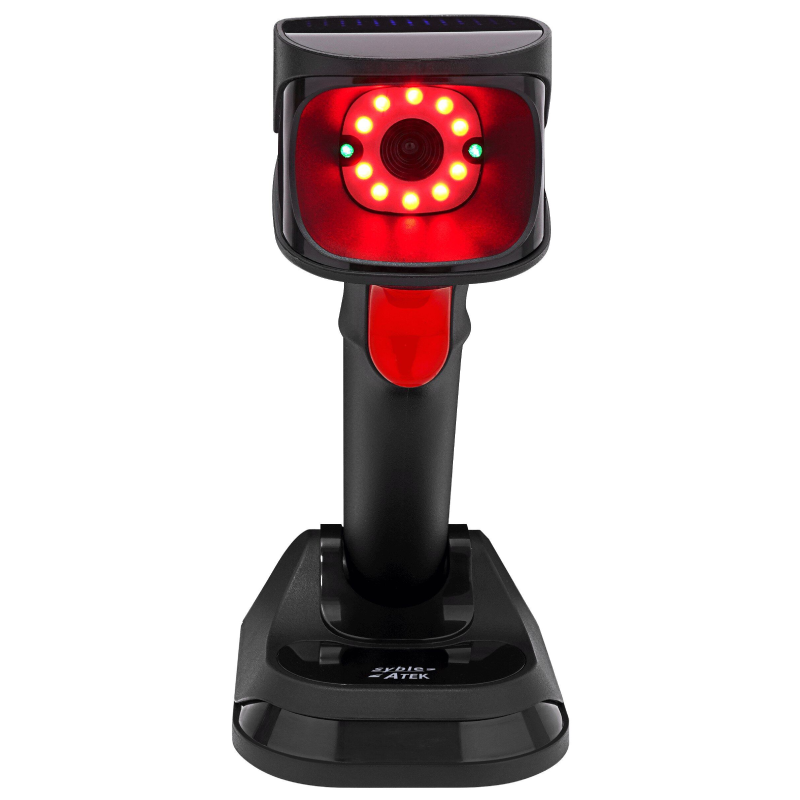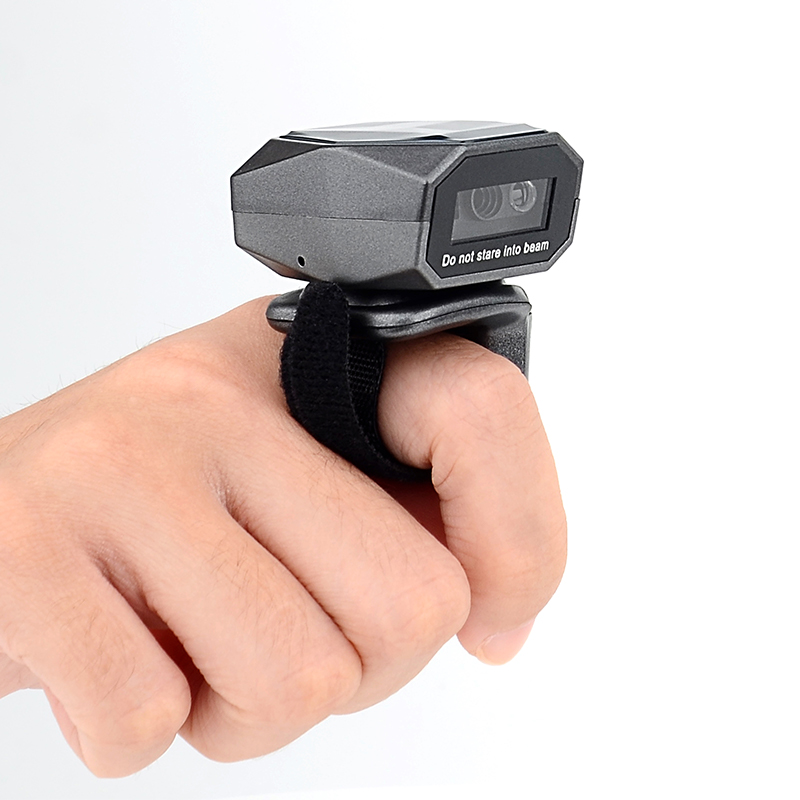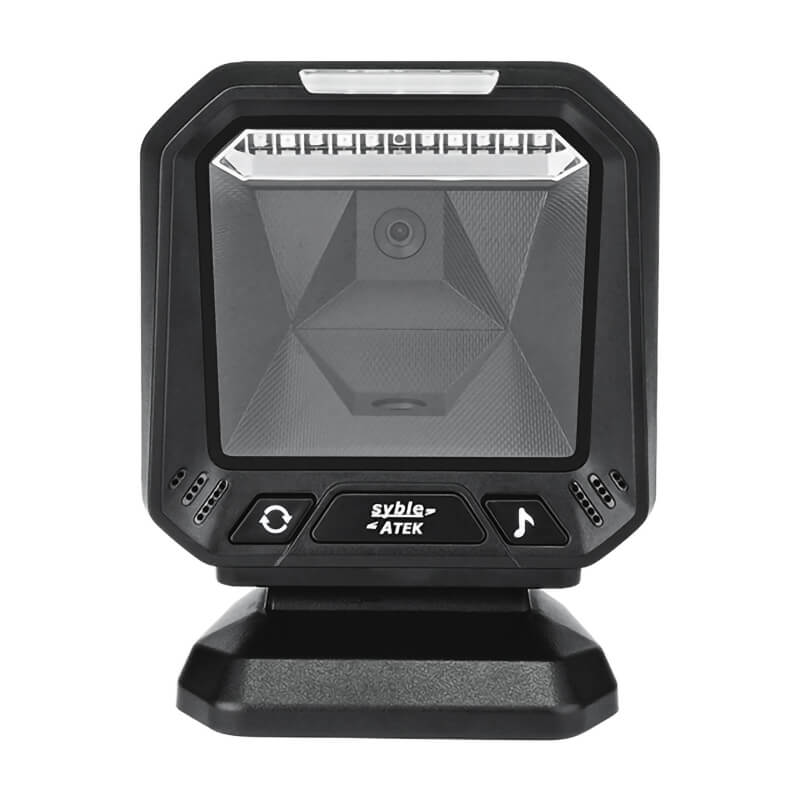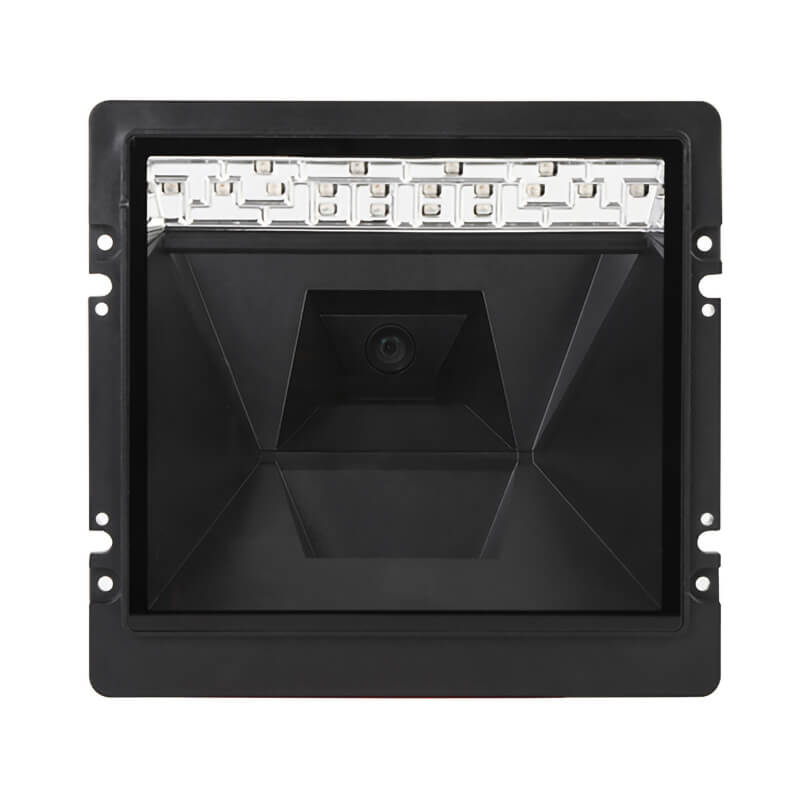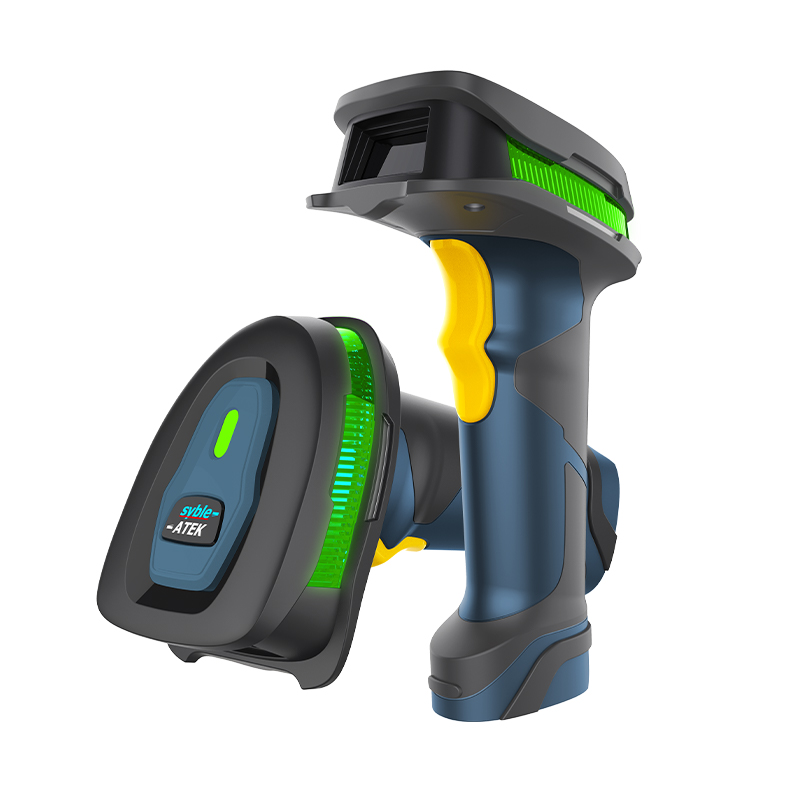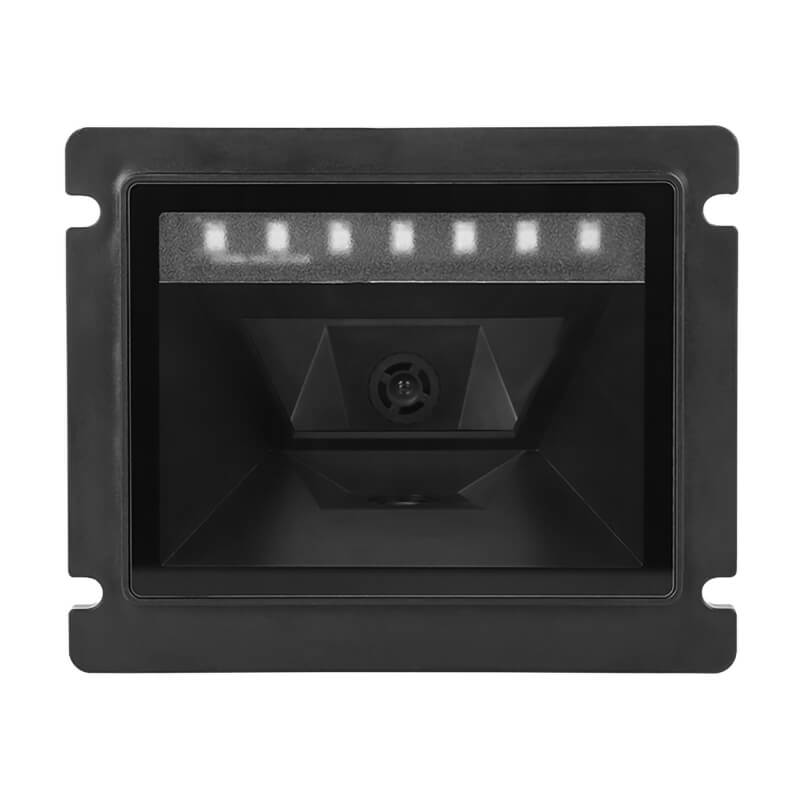1D CCD (Charge-Coupled Device) red-light barcode scanner operates by capturing and decoding linear barcodes using a linear CCD imaging principle. Its primary components include:
Optical Lens: Focuses light reflected from the barcode onto the CCD sensor.
Illumination System: Often incorporates red LED lights to uniformly illuminate the barcode, ensuring consistent reflection.
CCD Linear Sensor: Comprises an array of photodiodes that detect the intensity of reflected light, converting it into corresponding electrical signals.
Signal Amplification Circuit: Enhances the electrical signals from the CCD sensor for improved processing accuracy.
Decoding Circuit: Interprets the amplified signals to extract the encoded information within the barcode.
Operational Principle:
1.Illumination: The scanner emits red light from its LED source, illuminating the barcode.
2.Reflection: The barcode's black and white stripes reflect light differently; white areas reflect more light, while black areas absorb it.
3.Image Capture: The optical lens collects the reflected light and projects it onto the CCD linear sensor.
4.Signal Conversion: The CCD sensor detects variations in light intensity across the barcode and converts these optical signals into corresponding electrical signals.
5.Signal Processing: The electrical signals are amplified and processed to reconstruct the barcode's pattern.
6.Decoding: The processed signals are analyzed by the decoding circuit to retrieve the information encoded in the barcode.
Advantages:
Durability: With no moving parts, CCD scanners are generally more robust and resistant to physical shocks.
Cost-Effectiveness: Typically more affordable than laser-based scanners.
Ease of Use: Often lightweight and straightforward to operate.
Limitations:
Scanning Distance: Effective scanning range is usually limited to within 8 centimeters.
Field of View: May struggle with reading barcodes that are too wide or located on curved surfaces.
Resolution Constraints: High-density barcodes might be challenging to read accurately.
In summary, 1D CCD red-light barcode scanners are suitable for applications requiring close-range scanning of standard linear barcodes, offering a balance between performance and cost.


